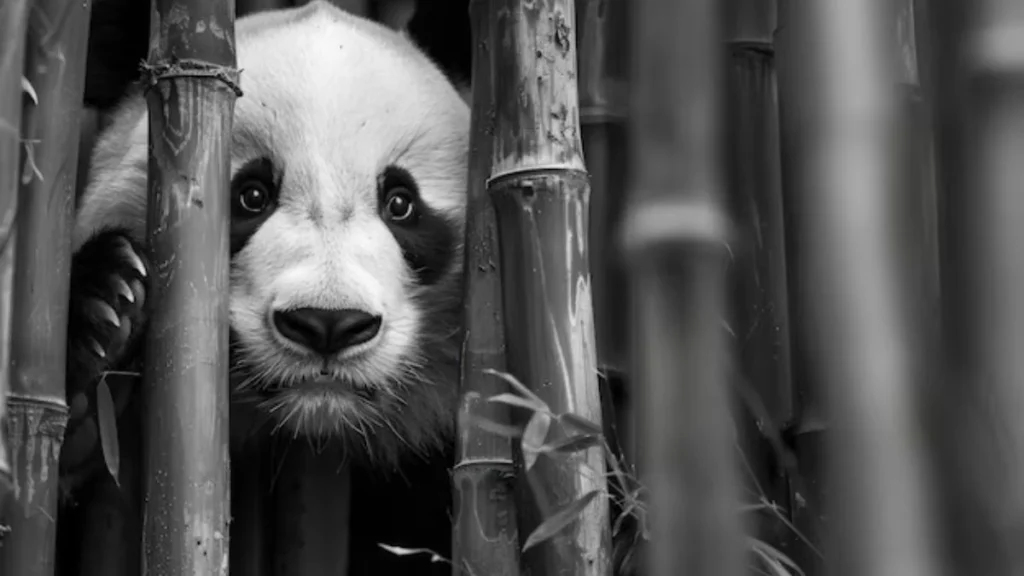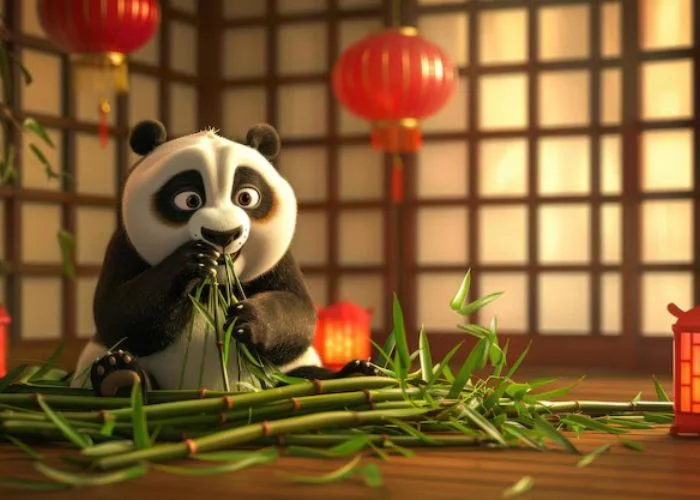Kung Fu Panda, an animated masterpiece by DreamWorks Animation, has sparked countless debates and admiration, particularly in China. Exploring Kung Fu Panda in Chinese reviews reveals how this globally acclaimed movie has been perceived in the country that inspired its themes and setting. From its artistic achievements to its cultural controversies, this article unpacks the layers of appreciation and critique surrounding the franchise.
Kung Fu Panda Made by Which Country?
Kung Fu Panda was produced by DreamWorks Animation, an American studio known for hits like Shrek and How to Train Your Dragon. Despite being an American creation, the movie’s setting, characters, and core themes are deeply rooted in Chinese culture. From the architecture to the martial arts traditions, Kung Fu Panda celebrates Chinese heritage in ways that resonate globally.
The film’s origin raised questions among Chinese audiences: Why was a Western company able to portray Chinese culture so authentically while domestic studios struggled to deliver similar results? This sparked a mix of admiration for DreamWorks and introspection within China’s animation industry.
Why China Cared About Kung Fu Panda
China cared deeply about Kung Fu Panda because it represented a global celebration of their culture. The movie introduced audiences worldwide to kung fu, Chinese landscapes, and philosophical teachings. Many Chinese viewers were proud to see their traditions beautifully portrayed on the big screen.
However, the success of Kung Fu Panda also prompted reflection. If an American studio could create such an authentic representation of Chinese culture, why hadn’t local filmmakers done it first? This question fueled debates about the state of China’s film industry and the challenges of competing on a global stage.
The Artistic and Cultural Impact
Is Kung Fu Panda Chinese or Japanese?
A recurring question in reviews is whether Kung Fu Panda is Chinese or Japanese. The answer is straightforward: the film is distinctly Chinese in its themes, setting, and cultural elements. However, because it was produced by an American studio, some viewers initially confused its origins.
Unlike Japanese anime, Kung Fu Panda adopts Chinese aesthetics, with its story rooted in kung fu traditions and its visuals inspired by Chinese landscapes. This distinction has been crucial in shaping the film’s reception in China.
Kung Fu Panda in Chinese Reviews: Praise
Many Chinese critics praised Kung Fu Panda for its visual excellence and emotional storytelling. The film’s humor, coupled with its philosophical undertones, struck a chord with audiences of all ages.
The portrayal of Po, the lovable panda, as a kung fu underdog resonated deeply with viewers. His journey of self-discovery and perseverance reflected values cherished in Chinese culture. The movie’s attention to detail, from calligraphy to traditional food, further demonstrated its respect for its source material.
H2: Kung Fu Panda: Problematic or Authentic?
Kung Fu Panda Problematic Themes
While Kung Fu Panda earned widespread acclaim, it was not without criticism. Some Chinese critics pointed out that the movie occasionally simplified Chinese traditions to cater to a global audience. For instance, kung fu was portrayed more as an action spectacle than a spiritual practice, which some found reductive.
Others debated whether the film ventured into cultural appropriation. Could an American studio truly capture the essence of Chinese heritage? While most reviews leaned toward admiration, these questions underscored the complexities of cross-cultural storytelling.

Kung Fu Panda China Controversy
A significant controversy arose from the fact that Kung Fu Panda was a Western production. Many in China felt it was ironic that an American studio could craft such a distinctly Chinese story while local filmmakers lagged behind.
This criticism wasn’t aimed at the movie itself but rather at the state of China’s animation industry. The success of Kung Fu Panda served as a wake-up call, inspiring domestic studios to invest more in high-quality productions that reflect Chinese culture authentically.
While Kung Fu Panda has sparked rich discussions about cultural representation and authenticity, it’s worth noting that other films with distinct cultural elements have also drawn attention for their artistic interpretations. For instance, Beetlejuice offers a unique perspective on the supernatural genre, which has been widely discussed in Beetlejuice Beetlejuice Reviews. These reviews highlight the movie’s creative storytelling and cultural impact, much like the discussions surrounding Kung Fu Panda in Chinese reviews.
The Franchise’s Growing Legacy
Kung Fu Panda 4 China Expectations
With the announcement of Kung Fu Panda 4, excitement is building among Chinese fans. Many are curious about how the next installment will continue to showcase Chinese culture while appealing to a global audience.
The success of the previous films has set high expectations. Will DreamWorks maintain the same level of authenticity? Will the film explore new aspects of Chinese tradition? These questions dominate discussions as fans eagerly await Po’s next adventure.
Conclusion: Kung Fu Panda in Chinese Reviews
Kung Fu Panda in Chinese reviews reveals a fascinating blend of appreciation and critique. The movie’s celebration of Chinese culture earned widespread admiration, but its Western origins sparked debates about cultural representation and the challenges faced by domestic filmmakers.
As the franchise continues to grow, its legacy in China remains both a source of pride and a call to action for local creators. With Kung Fu Panda 4 on the horizon, the journey of this beloved panda is far from over, promising new cultural insights and entertainment for fans worldwide.
As anticipation builds for the release of Kung Fu Panda 4, fans are eager to see how the next installment will continue to celebrate Chinese culture while appealing to a global audience. The previous films set high expectations, and Kung Fu Panda 4 is expected to explore new aspects of Chinese tradition. For more details about the upcoming film and its development, check out this link.

FAQs About Kung Fu Panda in Chinese Reviews
What is the general Chinese opinion on Kung Fu Panda?
Chinese reviews largely praise the film for its cultural authenticity and visual appeal, though some critics highlight concerns about oversimplification.
Kung Fu Panda made by which country?
The movie was made in the United States by DreamWorks Animation but heavily features Chinese cultural elements.
Why was Kung Fu Panda problematic for some Chinese viewers?
Some felt the film simplified or Westernized certain aspects of Chinese culture, sparking debates about cultural representation.
Is Kung Fu Panda Chinese or Japanese?
Kung Fu Panda is Chinese in its themes and aesthetics but was produced by an American studio.
What are the expectations for Kung Fu Panda 4 in China?
Fans hope the fourth installment will continue to celebrate Chinese culture while offering fresh insights and entertainment.





